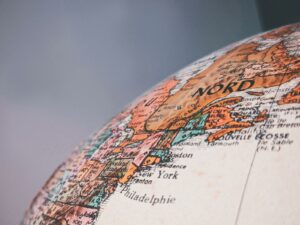Contents
What Are Examples Of Indigenous Knowledge?
Indigenous knowledge encompasses a vast array of intellectual property, including traditional innovation, know-how, and skills in areas such as science, technology, medicine, agriculture, and biodiversity.
This knowledge also extends to art and culture, including visual symbols, architecture, languages, music, narratives, and other artistic expressions.
Significantly, indigenous knowledge pertains to historical, contemporary, and evolving knowledge.
How Is Indigenous Knowledge Protected?
Indigenous intellectual property is often used inappropriately without the consent of the rightful owners.
In New Zealand, the Treaty of Waitangi and its principles play a crucial role in the protection of Māori traditional knowledge. However, there are still challenges in enforcing these protections.
There are several issues with the current intellectual property rights system in its ability to safeguard indigenous knowledge, such as:
- The duration of protection may be insufficient, as patents in New Zealand typically last for 20 years.
- There is an overemphasis on individual ownership, whereas indigenous knowledge is often collectively owned by communities.
- The system is geared towards commercial transactions rather than the preservation of cultural expressions.
- It may not adequately protect informal innovation.
For a more in-depth discussion on these issues, you may refer to relevant research and resources provided by New Zealand organisations.
When Might A Business Use Indigenous Knowledge?
Businesses may inadvertently utilise indigenous knowledge, or they might use such knowledge without realising the need to seek permission first. Utilising indigenous knowledge without consent can lead to negative consequences.
As with any intellectual property owner, recognition and permission are crucial. Consultations with Māori communities have highlighted the importance of control, protection, recognition, and respect for indigenous knowledge.
Here are some scenarios where businesses might use indigenous knowledge:
· A Wellington beverage company creates a trademark icon that incorporates a Māori motif representing water.
· A baker, inspired by a Māori-guided tour showcasing traditional uses of native plants, creates and sells cakes using techniques described by the guide.
· A health products business wishes to use traditional herbs known for their therapeutic properties in Māori culture. They harvest these herbs and market them for their traditional uses.
· A choreographer witnesses a Kapa Haka performance and incorporates the unique movements into their own dance company’s repertoire.
What Should You Do If You Want To Use Indigenous Knowledge In Your Business?
Respecting the owners’ intellectual property and adhering to international law will not only be the right thing to do but will also enhance your business’s reputation. Seeking advice, permission, and partnership with the owners of the intellectual property you wish to use is essential.
What practical steps can you take if you want to use indigenous knowledge in your business?
It’s important to be aware that protocols exist in many industries for seeking permission to use indigenous knowledge. You should investigate the specific protocols applicable in your sector.
For example, the beverage company and dance company using Māori art should start by following the guidelines set out by “Te Puni Kōkiri – Guidelines for Māori Intellectual Property”.
In Summary
While there are no specific intellectual property laws for indigenous knowledge in New Zealand, the Treaty of Waitangi provides a framework for its protection. Nevertheless, it is imperative to seek consent before profiting from or using indigenous knowledge in your business. If you wish to discuss this with an intellectual property lawyer, please contact us on 0800 002 184 or [email protected].
Get in touch now!
We'll get back to you within 1 business day.











